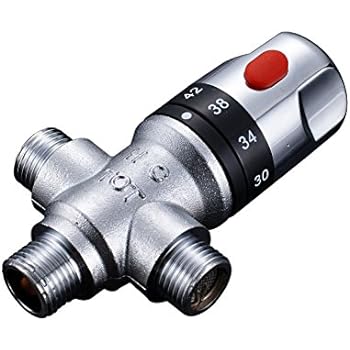ERD50
Give me a museum and I'll fill it. (Picasso) Give me a forum ...
I get 120 at my kitchen sink and there no way I can keep my hand under it. I think 120 is pretty hot, but I guess it’s and individual thing.
...
I tried this morning with a thermometer, 120F is hotter than I thought. Under running water, I wanted to pull my hand out after about 5 seconds. At max of ~ 131 F, it was painful by only 3 seconds. I found ~ 110F to be hot, but not painful.
In Celsius, that's about 110F/43C, 120F/49C, 131F/55C.
For a while, I've been thinking about how at the kitchen sink, I almost always want just one of three temperatures - max hot, max cold, and "as hot as comfortable". It's kind of a pain (sometimes literally!) to get that Goldilocks temperature. So I was thinking about one of these:
https://www.amazon.com/Rozin-Thermo...HEYCG5CK464&psc=1&refRID=NAM3J03YAHEYCG5CK464

But I don't think I could mount it to be easy to change the setting for when we want full hot, I would need a Normally Open, and a Normally Closed solenoid, and mount a switch?
-ERD50
